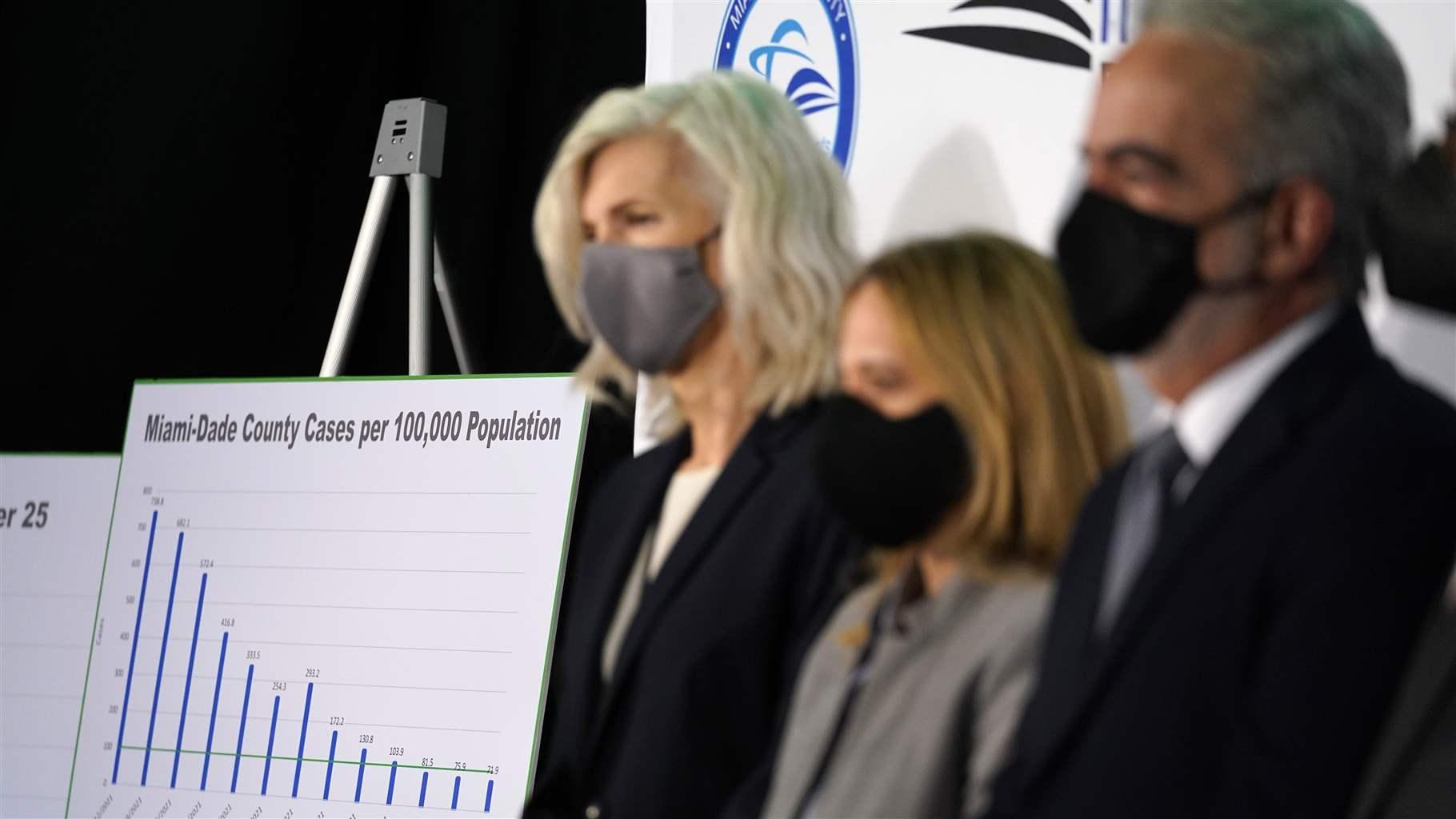Policymakers Must Act to Bolster Public Health Data Collection and Reporting
Bipartisan recommendations highlight steps to ensure that health officials have timely and complete information

The COVID-19 pandemic made clear that improvements are needed in the nation’s public health system. A new report from the Bipartisan Policy Center (BPC) aims to lay out a framework for necessary changes. Developed in collaboration with a steering committee on which I served, the report touches on several priorities—from laws and governance to funding and staffing—that can help ensure that public health agencies are better prepared for future emergencies.
One critical area highlighted is the need for electronic data sharing. Public health agencies need timely access to information on the threats facing their communities. Although this issue predated the pandemic, it has been a huge stumbling block during the crisis. Any effort to improve the public health system will require that data reach public health agencies in a timely manner.
An important step toward this goal is having health care providers and labs electronically report four key types of data—those from individual cases of diseases, test results, immunization records, and emergency department visits—all of which can be used to identify potential population-level health threats. Each has a critical role to play in painting a clear picture of how communities are being affected by diseases or health conditions—without access to all of this data, state and local officials will struggle to quantify and understand the threats facing their communities, or how best to respond to them.
Pew is working in the following ways to help move BPC’s data recommendations forward.
Expand reporting requirements for health care providers
Last month, the Centers for Medicare & Medicaid Services (CMS) announced that it would require that providers who treat Medicare patients share data electronically with public health agencies on cases of disease and immunizations. This is a critical requirement for these agencies: Electronic data sharing can help them analyze and act on information more quickly than if it was received through traditional means such as faxes or phone calls. And having such information can help agencies track the potential spread of diseases in their communities, as well as provide insights into how well-protected those communities may be, based on vaccination rates.
However, not all of the information needed by public health agencies was included in the final rule. Syndromic surveillance data—which provides a communitywide picture of potential health threats and tracks the emergence or spread of illnesses—remains optional. In the next policy update, CMS should consider requiring urgent care and emergency room providers to send syndromic surveillance data.
Ensure that electronic health records can share data with public health
Most electronic health record (EHR) systems have the capacity to send information to health agencies, but because of various factors—such as concerns about cost or lack of familiarity with the systems—not all providers use those functions. CMS’ new requirement will help change that, but there are still some EHRs that lack the capacity to share the data electronically.
Because of this, CMS’ new payment rules grant providers a one-year extension to comply with electronic case reporting requirements if their EHRs don’t yet have this functionality. The Office of the National Coordinator for Health Information Technology, the federal agency that oversees health IT, should follow CMS’ lead and pass its own regulations requiring that all EHRs be able to electronically send any public health data along to agencies.
Update state policies to support electronic data sharing
For these steps to have the desired impact, not only must states require that this data be shared with their public health agencies, they must also ensure that those agencies can quickly receive and analyze the information. Many experiences of state agencies during the COVID-19 pandemic show that significant gaps remain.
To address this, state policymakers should require that all four key types of public health data be shared with public health agencies electronically, rather than continuing to allow submission by faxes, phone calls, mail, and other outdated methods that slow data collection and analysis. Policymakers also need to require that data be complete, such as by specifying that reports should include data on individuals’ races and ethnicities to make it easier to track a disease’s impact on different populations, as well as their contact information in the event that contact tracing is required.
Although getting complete, timely data to public health agencies won’t address all of the challenges they face, the BPC report highlights important actions that policymakers should take to ensure that their communities will be better protected from serious future health threats and ongoing challenges from chronic diseases such as diabetes and asthma. Without such data, any public health response will take longer to mount, putting more lives at risk.
Kathy Talkington directs The Pew Charitable Trusts’ work on public health issues.







